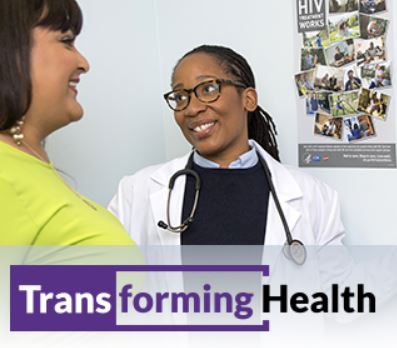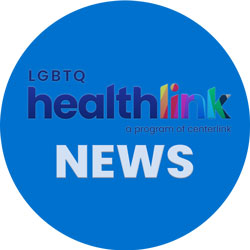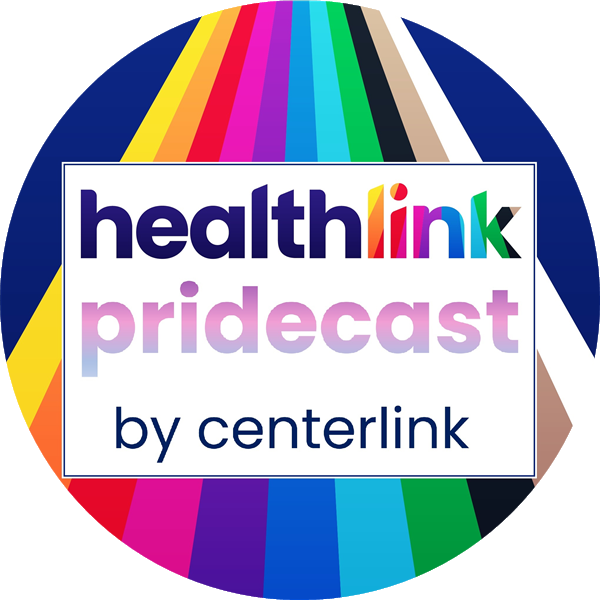CDC Pushes for Transgender Health

LGBT HealthLink, 8/9/2018
Looking to Learn About Staying Healthy and Cancer-Free?
LGBT HealthLink released new brochures packed with tips on wellness and cancer prevention in the queer community, as shared in a preview post on our website and in full on our membership page, which anyone can access with a free account. LGBT people face many preventable disparities in health and wellness and learning more is a great first step.
Queer Prostate Cancer Patients Face Bias
An LGBT publisher released a ground-breaking book on gay and bisexual men living with prostate cancer, that follows the path through diagnosis to survivorship and the bias, authors say, these men face along the way. They also note that while hundreds of thousands of studies have examined prostate cancer, only 88 have looked at the experiences of queer and transgender men.
Why Gay Men Avoid Care
A new study found that in addition to financial and health insurance barriers to receiving care, young gay men in New York also avoided the healthcare system because of their dissatisfaction with the care they received. Disturbingly, major sources of this dissatisfaction included perceived anti-gay attitudes, judgment of gay patients, and lack of knowledge about what gay men need.
Findings Mixed on Social Media and Depression
Researchers reviewed the available literature on LGBT social media use and its links to depression and found 11 recent articles. While some research established that cyber bullying of LGBT people was associated with depression and suicidality, and that social media could be a source of stress, LGBT folks also used social media to safely disclose experiences, share ways of coping, and find support.
What Docs Say Trans Youth Need
The Miami Herald reported on the great work some clinicians are doing to integrate more care options for transgender youth into hospital settings, including learning how to advise young patients who are struggling with gender identity and advising on a range of care and support options. One children’s hospital says that 30% of its patients seeking transgender-related care are now under the age of 16, highlighting the need for proper care at every age.
New Resources for Folks Living with HIV
The CDC launched a new website and fact sheet on living with HIV, in an effort to provide information on healthy living to the 1.1 million people living with HIV in the United States. They also have tips on how to disclose one’s HIV status, dealing with discrimination and bias, addressing mental health needs, and even traveling safely.
Coming Out Important for Quality Care
A new study from the CDC found that coming out to your doctor can have a big health benefit. Over 800 men who have sex with men were studied, and those who disclosed their sexual orientation to their doctors were more than twice as likely to get all the screenings and vaccines that are recommended – which helps prevent serious health problems such as cancer.
Sexual Minorities Less Likely to be Insured
Reuters reported on a new study that found that sexual minorities were less likely than their heterosexual counterparts to have health insurance, or to be employed. They were also more likely to report lower quality of life and poorer general health. Researchers warned that the truth could be even worse than the study shows because of intersectional disparities facing people of color.
CDC Pushes for Transgender Health
The CDC launched a new website to address the high risk of HIV faced by transgender individuals, with information both for transgender people themselves and for providers. They also announced an accompanying CME/CEU course to help train healthcare providers on how to provide quality care, including HIV-related services, to the transgender community.
Alcohol Disparities Grow Among Queer Youth
A national study found that while alcohol use generally decreased among heterosexual youth between 2007 and 2015, the results were less consistent for sexual minority youth. For example, the disparity for lifetime use of alcohol between heterosexual and gay boys actually grew during this timeframe, as did the disparity in early onset use among lesbian girls.
Healthcare Quality, Trainings on Rise
HRC published its eleventh annual healthcare equality index, which named 418 facilities as LGBTQ Healthcare Equality Leaders, and in which more than four in five participating facilities received at least an 80% score on measures of equality. Among the improvements from last year was a 63% increase in the number of LGBTQ-related training hours that were provided for staff.
Less Activity and Higher Risk for Queer Students
Researchers found that sexual minority youth were more likely than their heterosexual peers to to be obese and less likely to engage in physical activity – and, relatedly, to face higher risk of Type 2 diabetes. The national study looked at 350,000 high school students and concluded that minority stress faced by lesbian, gay, bisexual, and queer students may help explain these disturbing disparities.




